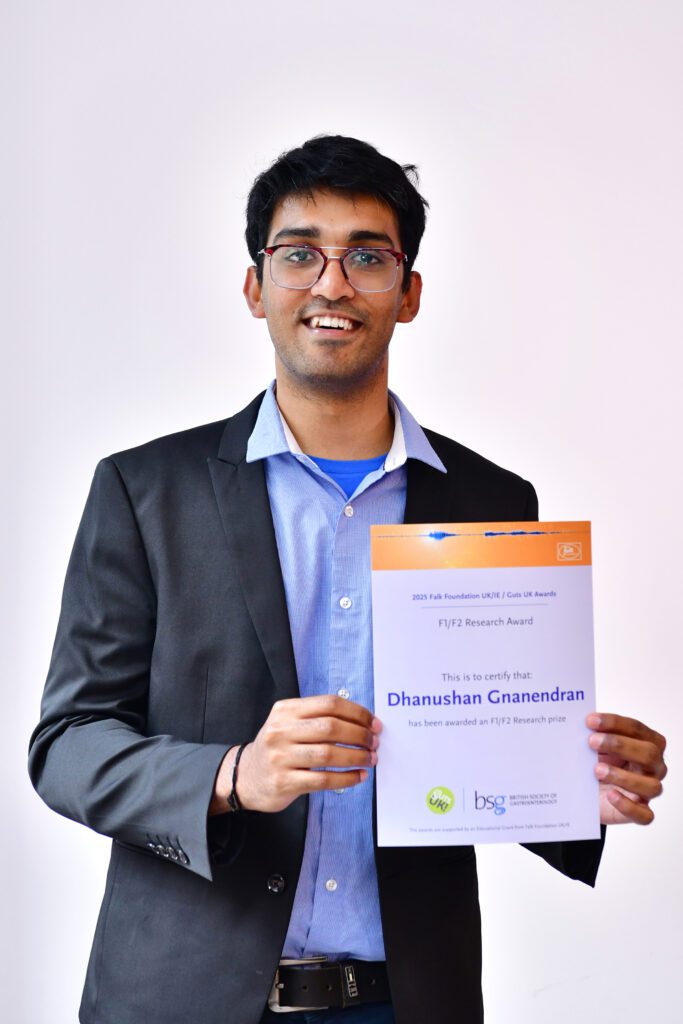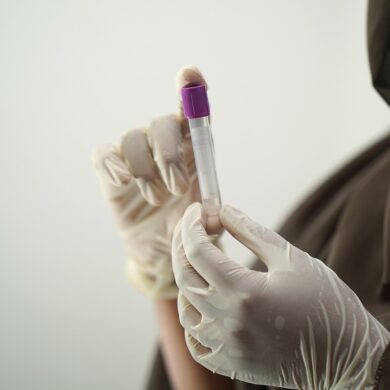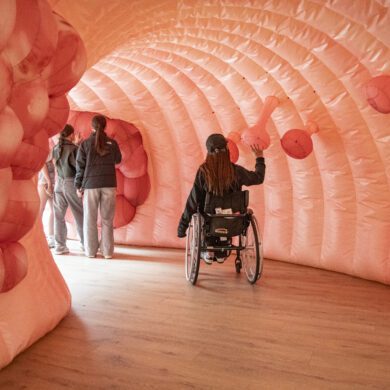Dhanushan Gnanendran
Project: "Liver's Silent Crisis: A Multi-Stakeholder Approach to Environmental Hepatology."
F1/F2 Research Awards Winner 2025

Dr Gnanendran explains:
“Liver disease represents a significant and escalating public health challenge, with mortality in the UK having increased four-fold over the past 50 years and now responsible for 10,000 deaths annually. While traditional risk factors such as alcohol-related liver disease, metabolic dysfunction-associated steatotic liver disease (MASLD), and viral hepatitis are well-established, mounting evidence also implicates other factors. We aim to explore the emerging field of environmental hepatology, aiming to characterise how planetary health intersects with liver disease epidemiology and care delivery.
The project utilises sequential qualitative methodology. First, semi-structured interviews will be conducted with patient and public representatives (PPIE) and stakeholders, recruited through national societies such as the British Society of Gastroenterology (BSG) and the British Association for the Study of the Liver (BASL), local authorities and academic institutions as well as liver patient support groups like the British Liver Trust and South West Liver Buddies.

Interviews will follow bespoke topic guides addressing perceptions of climate-health interactions, microplastics and environmental equity in liver care. Data will be audio-recorded, transcribed verbatim and analysed using Braun & Clarke’s six-step reflexive thematic analysis.
Secondly, a mixed PPIE-stakeholder focus group will apply the Nominal Group Technique to synthesise and refine interview themes, generate consensus-based research questions to achieve balanced, co-produced prioritisation. Outputs will include a stakeholder-informed research agenda that underpins a future roadmap for translational and policy-driven work.
By identifying risks and bringing together doctors, scientists, policymakers and patients, we can help shape policies and create effective strategies to fight liver disease. These include encouraging healthy lifestyles, improving healthcare access and using sustainable medical practices like telemedicine and non-invasive tests. These efforts can improve disease prevention rates, reduce hospital visits, improve treatment and healthcare services and help to protect vulnerable groups.”
What did it feel like to win this award?

I’m deeply honoured to receive the Dr. Falk Guts UK Award, a recognition that affirms my commitment to advancing hepatology through interdisciplinary, environmentally conscious research. This opportunity arrives at a pivotal moment in my career as I prepare to enter an Academic Clinical Fellowship, and it strengthens my trajectory toward becoming an academic clinician working in the area of blending rigorous science with clinical impact.
Read more about Dr Gnanendran’s project, focused on the liver, by downloading the PDF below.



